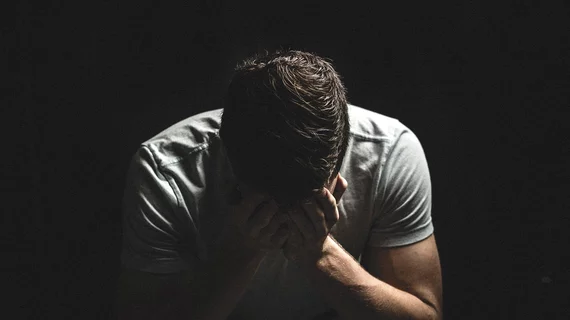CVD hospitalizations linked to much higher risk of depression, anxiety or suicidal thoughts
Being hospitalized for cardiovascular disease (CVD) significantly increases a person’s risk of being diagnosed with psychiatric disorders or attempting suicide, according to new research published in the Journal of the American Heart Association.[1]
The risk increases the most in the first year following hospitalization. However, researchers found that patients are still 24% more likely to be diagnosed with a psychiatric disorder up to nearly eight years later.
“It’s crucial to pay attention to both physical and mental health after a stroke or heart disease diagnosis,” senior author Huan Song, MD, PhD, a professor with the West China Biomedical Big Data Center, West China Hospital and Sichuan University, said in a prepared statement.
Song et al. explored UK Biobank data on nearly 64,000 patients first hospitalized for CVD—defined as ischemic heart disease, cerebrovascular disease, emboli/thrombosis, heart failure, arrhythmias or other cardiovascular complications—from 1997 to 2020. The group was then compared to more than 127,000 matched patients with no documented hospitalizations for CVD.
Overall, patients were 83% more likely to be diagnosed with a psychiatric disorder for the first year following a CVD hospitalization. The relationship was strongest for depression, anxiety and suicidal behaviors such as self-harm and suicide attempts.
When focused on stroke and other types of cerebrovascular disease, Song and colleagues found that the risk of psychiatric disorders or suicide attempts in that first year more than tripled.
“If you or a loved one has been hospitalized for heart disease, be aware that mental health issues may arise during recovery,” Song added. “It’s important to monitor for signs of anxiety, depression or suicidal thoughts. These mental health challenges are common and treatable.”
The authors emphasized the importance of seeking help if anyone ever has a suicidal thought, recommending they go to an emergency room right away or use a resources such as the National Suicide Prevention Lifeline (call 988 in the United States).
“Reach out to a therapist, counselor or psychiatrist for help if you’re struggling with your mental health or share your feelings with family members, friends or a support group to gain emotional support and help you navigate the challenges you’re facing,” Song said.
Read the full analysis here.

